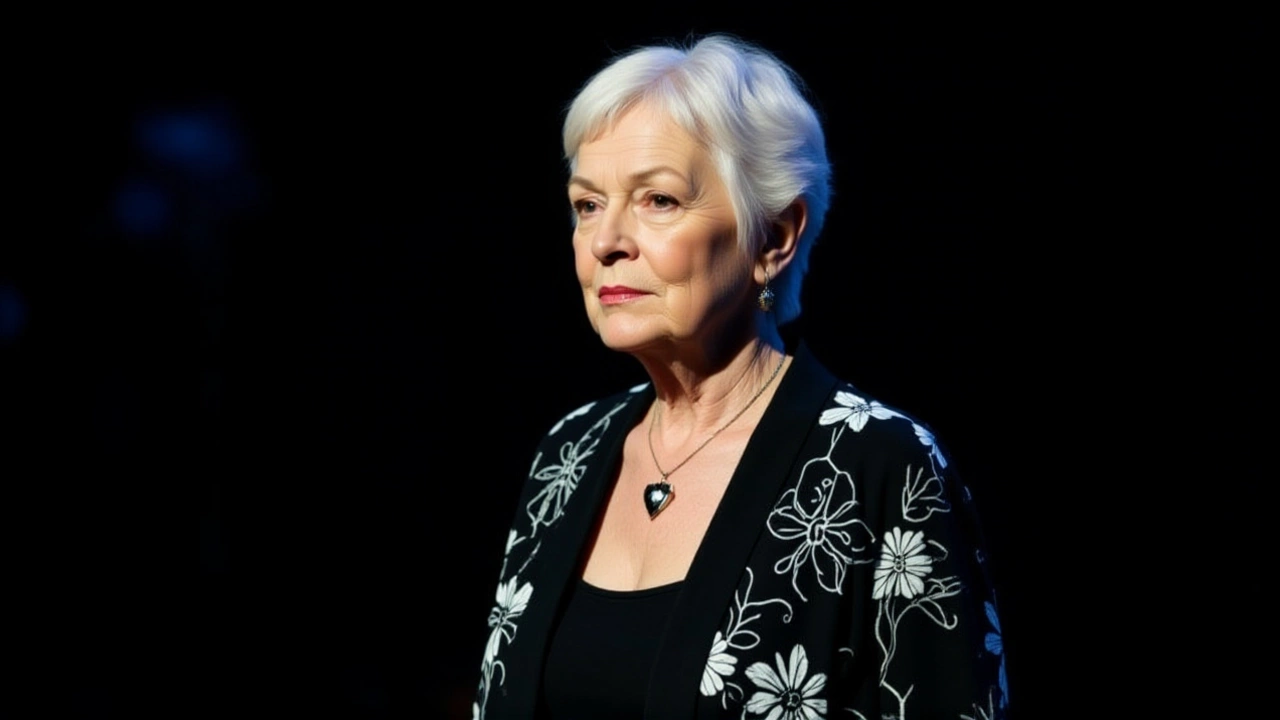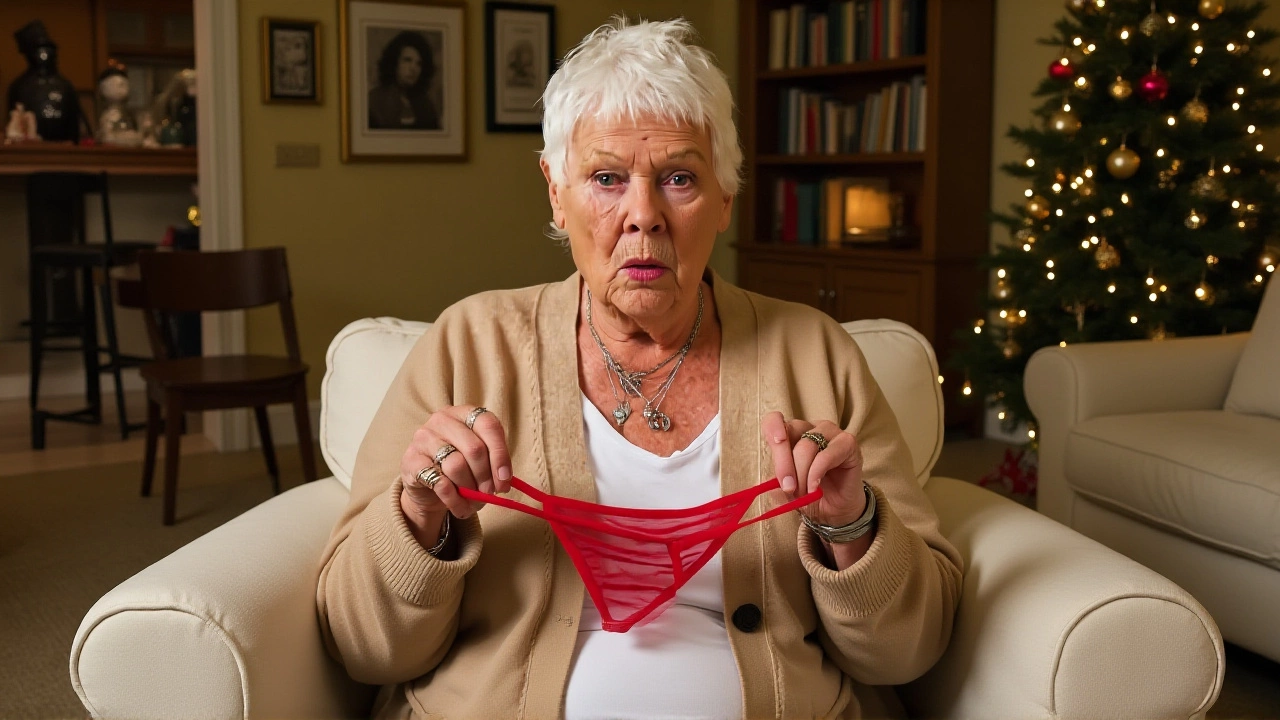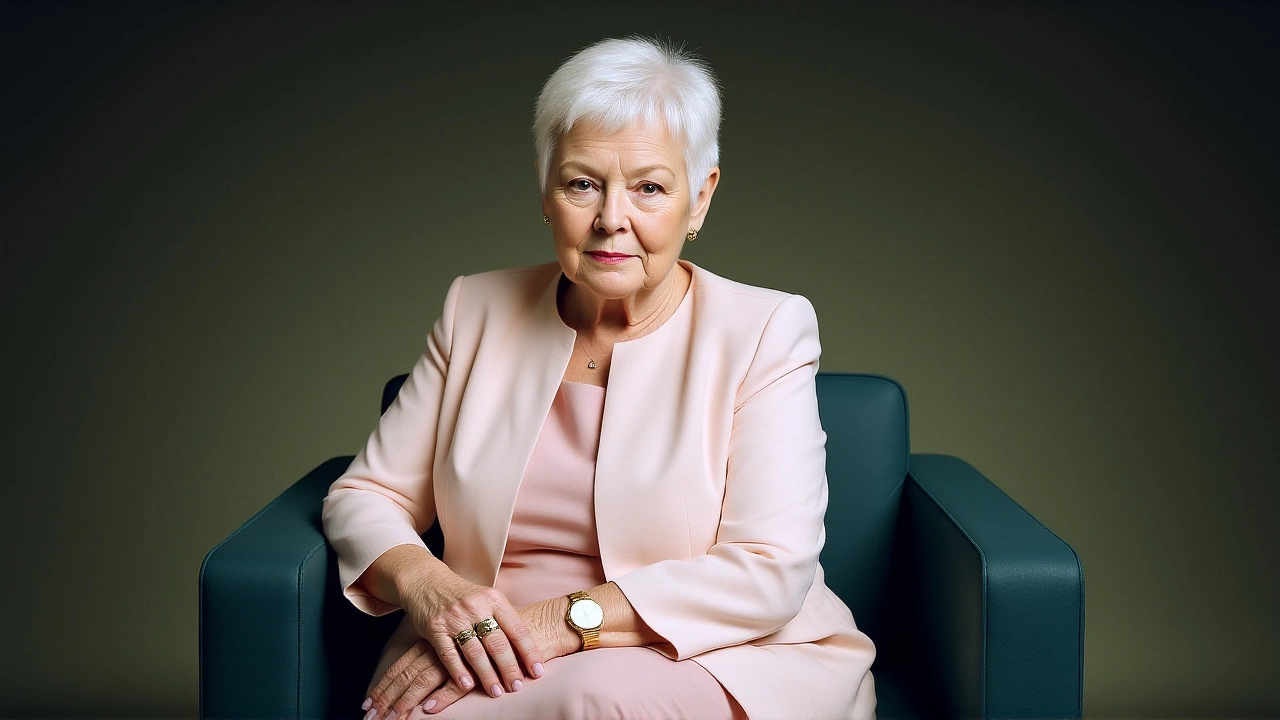At 89, Dame Judi Dench may have delivered her final performance—not from choice, but because her eyes no longer let her see the script, the stage, or even the faces of her co-stars. The British acting icon, whose career began in 1957 with The Old Vic Theatre Company in London, is widely believed to be stepping away from acting after six and a half decades, as age-related macular degeneration has robbed her of the vision she once relied on to bring Shakespeare and cinema to life. Her last known film roles were in Spirited (2022) and Allelujah (2023), both filmed before her condition worsened beyond the point of sustainable performance. Yet, even as her sight fades, her mind remains sharp as a scalpel—especially when it comes to the words of the Bard.
A Legacy Written in Light and Shadow
Dench’s career is a tapestry woven with roles that defined generations. She won the 1998 Academy Award for Best Supporting Actress in just eight minutes as Queen Elizabeth I in Shakespeare in Love, a performance so electric it silenced doubters who thought she was too small for the screen. But it was the stage where she truly ruled. Seven Olivier Awards. Tony nominations. Countless Shakespearean heroines: Lady Macbeth, Ophelia, Viola, Portia. She didn’t just play them—she breathed them. And now, she can’t read the lines anymore."No, no, I can’t even see," she told MovieWeb in October 2024. Those words, simple and devastating, echo louder than any standing ovation. She can no longer recognize friends in the street. Scripts are blurs. But here’s the twist: she can still recite entire soliloquies from Antony and Cleopatra—spontaneously, unprepared—on a library floor in Denmark, as captured in the upcoming Radio Times documentary directed by Harvey Lilley.
The Shakespeare That Won’t Leave Her
Director Harvey Lilley, who previously worked with Dench on My Passion for Trees and Wild Borneo Adventure, filmed her in Denmark exploring her ancestral roots and a surprising possible link to Shakespeare’s era. What surprised him wasn’t her knowledge—it was her emotional connection to the language."To her, it’s not an archaic tongue; it feels entirely natural," Lilley said. Dench, who hasn’t performed in Antony and Cleopatra since 1987, delivered the soliloquy without rehearsal. She doesn’t remember what she had for breakfast, she admits, but she can recite 400-year-old poetry with perfect rhythm and heart. "I can’t recall what I’m doing the day after tomorrow," she said, "but I can recite large portions of Shakespeare."
That’s the paradox of her condition. Macular degeneration steals the present, but the past—especially the poetic past—remains vivid. It’s as if her brain rewired itself to preserve the cadence of iambic pentameter while letting go of the mundane. Her love for Shakespeare isn’t academic. It’s survival. "I don’t act to be honored," she once said. "I act because I can’t live without telling a story."

Final Roles and Final Moments
Her last on-screen appearances were in Allelujah, where she played Mary, a former librarian in a geriatric ward, opposite Jennifer Saunders, who portrayed Sister Gilpin, and Bally Gill, who played Dr. Valentine. In a candid moment captured by Australian Women’s Weekly in November 2024, Dench joked about the experience: "Fancying Bally Gill is very, very easy indeed!" It was a laugh that masked deeper truth—she was still finding joy, still connecting, even when the world had gone soft around the edges.Her role as M in the James Bond films—starting with GoldenEye in 1995 and ending with Spectre in 2015—made her a global icon. She was the first woman to hold the role, and her icy authority redefined the character. Daniel Craig’s Bond leaned on her not as a mother figure, but as a force of nature. She didn’t need to shout. A glance, a pause, a single line—"I’m not impressed," she once said to a villain—could freeze a room.
Her bond with Sir Derek Jacobi dates back to their 2017 collaboration in Murder on the Orient Express. Both are giants of classical theater. Both have watched their bodies betray them. But where Jacobi still performs on stage, Dench’s eyes won’t allow it. Not anymore.
What Comes After the Curtain?
Dench hasn’t issued a formal retirement statement. That’s not her style. She doesn’t announce endings—she just stops showing up. But the signs are unmistakable: no new film projects in development, no theater offers reported, no interviews where she mentions rehearsing. Her last public appearance was at the Chelsea Flower ShowLondon in May 2024, where she wandered the gardens with a cane, smiling at blooms she could barely see.She remains active in charity work and continues to engage with the public through her Radio Times documentary, which explores her Danish heritage and the possibility that her ancestors once walked the same streets as Shakespeare’s contemporaries. The film, filmed before October 2025, is less about her decline and more about her defiance.
"She fears boredom," Lilley said. "Yes, her vision poses challenges, but she is eager to continue pursuing her passions. She makes it effortless because of her enthusiasm."

Why This Matters
Dench’s retirement isn’t just the end of a career—it’s the closing of a chapter in British cultural history. She was the bridge between the golden age of theater and the modern cinematic era. She brought Shakespeare to living rooms across the world. She made aging on screen not tragic, but powerful. Her legacy isn’t in awards (though she has more than most), but in the way she made us feel seen, even when she couldn’t see us.Her story reminds us that art doesn’t always need perfect vision. Sometimes, it needs a heart that remembers every word.
Frequently Asked Questions
How did macular degeneration affect Dame Judi Dench’s ability to act?
Macular degeneration severely blurred Dench’s central vision, making it impossible for her to read scripts, recognize faces, or focus on stage cues. While she could still memorize Shakespearean texts by heart, the physical demands of film and theater—tracking movement, reading lines, interacting with lighting and set design—became unmanageable. She confirmed in 2024, "No, no, I can’t even see," signaling the practical end of her performing career.
What was Dame Judi Dench’s final film role?
Her most recent film appearance was in Allelujah (2023), where she portrayed Mary, a former librarian in a hospital ward, alongside Jennifer Saunders and Bally Gill. She also appeared in Spirited (2022), a musical comedy with Will Ferrell and Ryan Reynolds. Both roles were filmed before her vision deteriorated to the point of no return. No new projects have been announced since.
Why can she still recite Shakespeare but forget recent events?
Shakespeare’s language is deeply encoded in Dench’s long-term memory, tied to rhythm, emotion, and decades of performance. Neurologically, poetic and musical memory often survives longer than short-term recall. She’s said she can’t remember what she’ll do tomorrow, but can recite entire soliloquies from plays she hasn’t touched since the 1980s—proof that art can outlast the body’s decline.
Did Dame Judi Dench ever consider retiring before her vision failed?
Never. Even in her 80s, she took on new roles, including the 2021 Oscar-nominated Belfast. She viewed acting as essential to her identity, not a job. Her retirement wasn’t planned—it was forced. As she told Radio Times, she fears boredom more than aging. Her passion for storytelling kept her working until her eyes could no longer keep up.
What legacy will Dame Judi Dench leave behind?
She redefined aging for women in entertainment, proving that depth, authority, and charisma don’t expire. She brought Shakespeare to mainstream cinema and made M, the head of MI6, one of the most iconic female characters in spy film history. Her seven Olivier Awards and Oscar win are milestones, but her true legacy is the emotional truth she brought to every role—no matter how small or brief.
Is there any chance she’ll return to acting?
It’s highly unlikely. With her vision now too impaired to read scripts or recognize co-stars, the physical demands of acting are no longer feasible. Even audio-only work would require memorization of new material, which has become increasingly difficult. Her focus has shifted to charitable causes and the Radio Times documentary, where she’s content to be remembered—not for what she can no longer do, but for what she gave the world.



